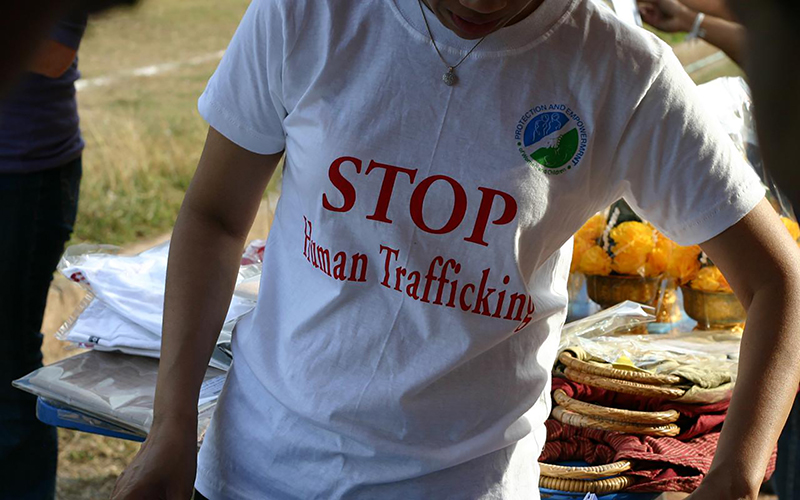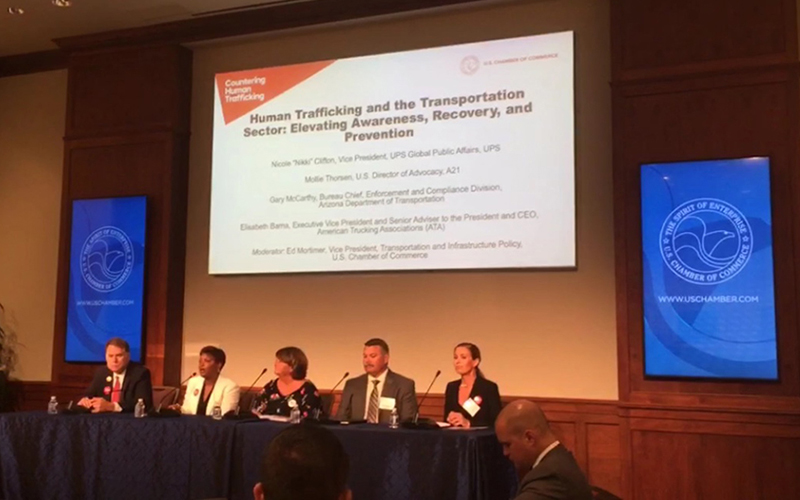
Most trafficking victims are citizens of the countries where they are trafficked, but officials say Arizona’s location as a border state means people need to be alert to the possibility of victims being smuggled across the border as well. (Photo by Thomas Wanhoff/Creative Commons)
WASHINGTON – Human trafficking is a massive problem, which is why Arizona has adopted a “massive approach” to dealing with it, a state official told a gathering in Washington Tuesday.
Gary L. McCarthy, chief of enforcement and compliance for the Arizona Department of Transportation, told a U.S. Chamber of Commerce audience that Arizona’s “holistic approach” brings nonprofit organizations, law enforcement and prosecution together to get survivors necessary services, like psychological and medical resources.
By using all resources available, he said, “we can get the best help for the victim once they’re identified.”
His comments came at a forum where business and government officials discussed ways to deal with what one called “the world’s fastest-growing crime.”
“It’s only becoming more prevalent,” said Catherine Todd Bailey, chair of the U.S. Department of Transportation’s Advisory Committee on Human Trafficking, who spoke at Tuesday’s event.
Reported numbers of trafficking victims have increased in recent years across the globe, according to the United Nations Office on Drugs and Crime. Experts are unsure whether the rise is due to better reporting or more victims – statistics that depend on what Bailey called “limited and inconsistent” data.
She said social media has also expanded the parameters of “modern-day slavery,” allowing traffickers to target victims through online forums.
That growth can be seen in Arizona, where trafficking is an “underground crime” pervading every corner of the state, said Stacey Sutherland, program director at Training and Resources United to Stop Trafficking (TRUST).
“In our large city areas, we may have several different kinds of trafficking, like street-based prostitution, online ads, illicit massage parlors,” she said. “They may have more familial trafficking in rural areas.”
The UN office reported that 68% of victims in North America were citizens of the country where they were trafficked in 2016. But Arizona, as a border state, also needs to be alert to the trend of foreigners trafficked into the state through Mexico, McCarthy said.

Arizona Department of Transportation Chief of Enforcement and Compliance Gary L. McCarthy, second from right, told a U.S. Chamber of Commerce audience that the state takes a holistic approach to fighting trafficking. (Photo by Megan U. Boyanton/Cronkite News)
While transportation routes, like air, rail, ports and roads, are crucial to offenders, Bailey said they can also serve as “lifelines” for victims to reach out for help.
Even when Arizona law enforcement officials identify victims, though, McCarthy said the process moves gradually.
“The victims have been told that law enforcement is bad; don’t talk to them because they’re going to get us in trouble,” he said. “That’s a whole other level of rapport we have to build for them to trust us.”
Organizations like TRUST teach officers the intricacies of human trafficking. “They realize you can’t arrest your way out of this problem,” Sutherland said.
It’s a vast improvement from McCarthy’s days as a rookie cop in Chandler in 1994, when he said police terminology was limited to “johns” and “hookers.” Advocates in the state call the new approach a sensible one.
“Arizona is very lucky,” Sutherland said. “We have a lot of law enforcement agencies that are very engaged and understand the victimization that is a part of this crime, versus just arresting, arresting, arresting.”
In the fight against human trafficking, advocates turn to awareness campaigns – to spread the word across business sectors and into households.
Bailey said it is employees, not CEOS, who have the potential to spot human trafficking on a day-to-day basis. They just need the training to do so.
McCarthy said that same training could help both officers and citizens identify victims in ordinary situations.
“I want the citizens of Arizona to be informed and be able to make a difference in someone’s life if they see something,” he said.
